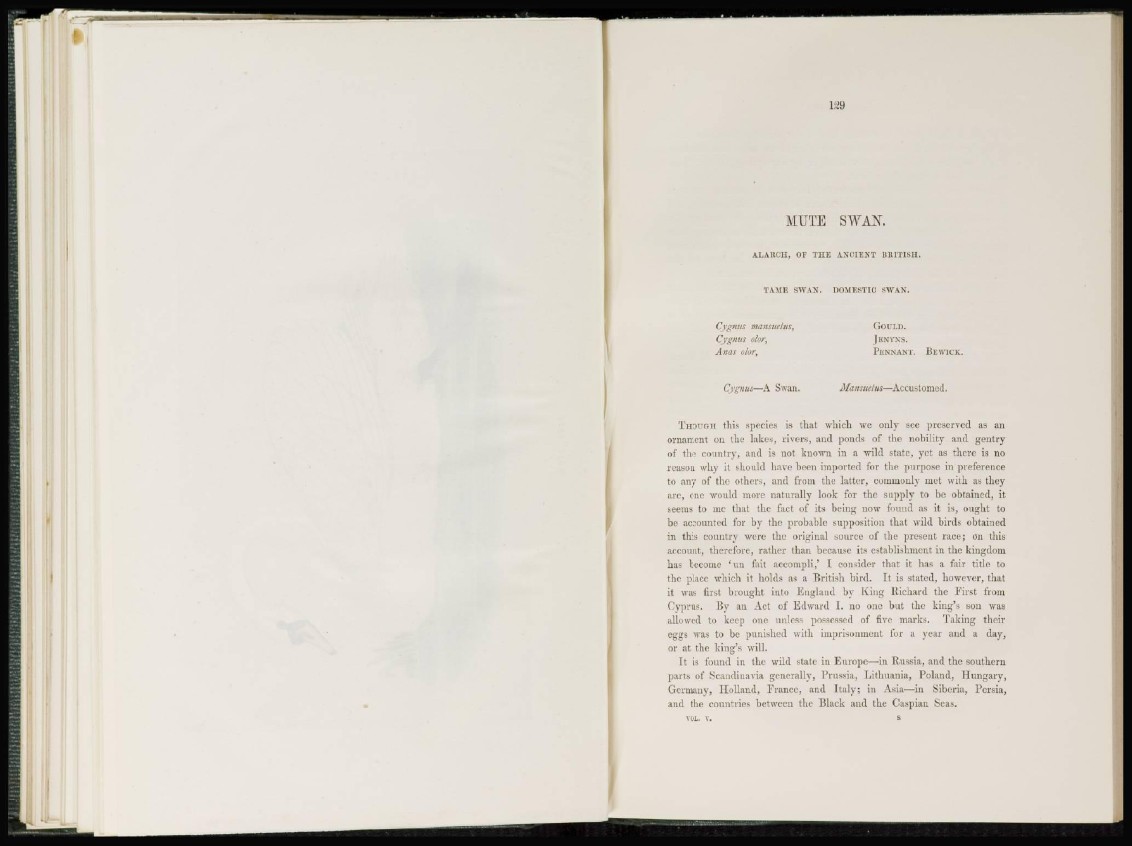
MUTE SWAN.
ALARCII, OF THE ANCIENT BRITISH.
TAME SWAN. DOMESTIC SWAN.
Cygnus mansuetus,
Cygnus olor,
Anas olor,
GOULD.
JENYNS.
PENNANT. BEWICK.
Cygnus—A Swan. Mansueius—Accustomed.
T H O U G H this species is that which we only sec preserved as an
ornament on the hikes, rivers, and ponds of the nobility and gentry
of the country, and is not known in a wild state, yet as there is no
reason why it should have been imported for the purpose in preference
to any of the others, and from the latter, commonly met with as they
are, one would more naturally look for the supply to be obtained, it
seems to me that the fact of its being now found as it is, ought to
be accounted for by the probable supposition that wild birds obtained
in this country were the original source of the present race; On this
account, therefore, rather than because its establishment in the kingdom
has become ' m i fait accompli,' I consider that it has a fair title to
the place which it holds as a British bird. It is stated, however, that
it was first brought into England by King Richard the First from
Cyprus. By an Act of Edward I. no one but the king's son was
allowed to keep one unless possessed of five marks. Taking their
eggs was to be punished with imprisonment for a year and a day,
or at the Icing's will.
It is found in the wild state in Europe—in Russia, and the southern
parts of Scandinavia generally, Prussia, Lithuania, Poland, Hungary,
Germany, Holland, France, and Italy; in Asia—in Siberia, Persia,
and the countries between the Black and the Caspian Seas.
VOL. v. s